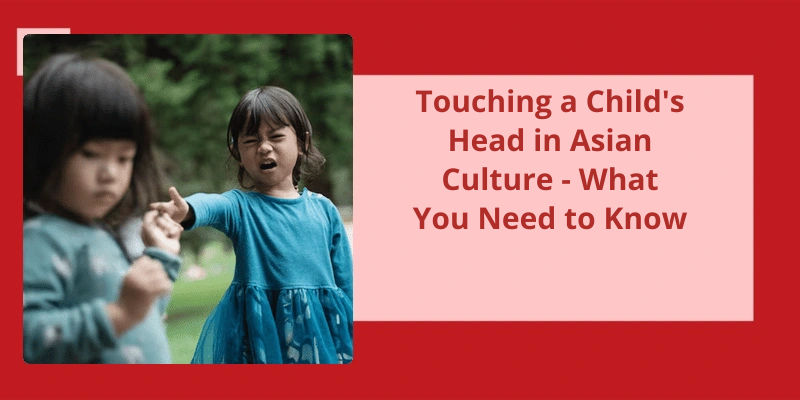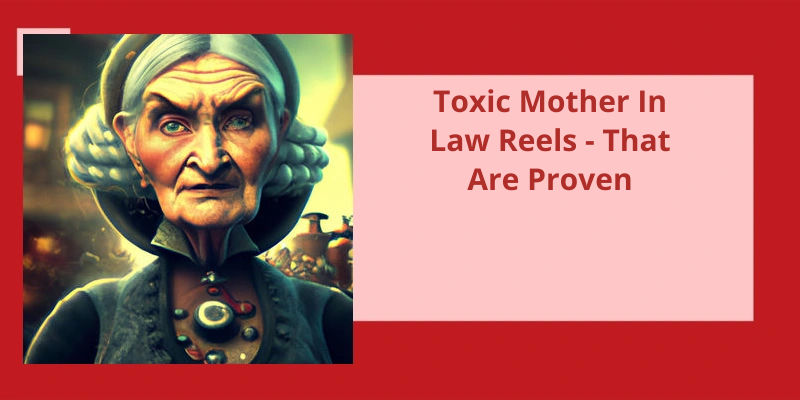Growing up, my relationship with my mother was far from conventional. It was a journey filled with complexities, unspoken words, and missed connections. We never seemed to find that natural bond that many other mothers and daughters effortlessly shared. Our relationship was marked by a constant struggle to understand and connect with each other on a deeper level. As I reflect on this unconventional dynamic, I’m forced to confront the unanswered questions and lingering emotions that have shaped our relationship.
Why Do I Have No Attachment With My Mother?
I never bonded with my mother: reflecting on our unconventional relationship has been a constant source of confusion and introspection for me. Over the years, I’ve come to understand that the lack of attachment I feel towards my mother could stem from an avoidant attachment. It feels as though this pattern developed from her consistent disregard and harsh treatment towards me. Rather than offering love and support, she’d consistently criticize and expect me to keep my emotions and behavior under complete control. This relentless expectation left me feeling neglected and unsupported, leading to a detachment that I still struggle to fully comprehend.
Looking back, I realize that my mother never truly nurtured me. Instead of experiencing a loving and affectionate bond, I was left to meet my own needs and fend for myself emotionally. Any vulnerability or expression of emotions was met with dismissiveness or judgments, causing me to retreat further into myself. It was as though she expected me to be self-sufficient from an early age, leaving no room for me to seek the comfort and reassurance that all children crave and deserve from their mother.
This unconventional relationship has had a profound impact on my development. It’s shaped my ability to form attachments and caused me to approach relationships with caution and hesitation. I often find it difficult to trust and open up to others, fearing that they too will neglect or criticize me in the same way my mother did. This detachment has also affected my own ability to express emotions, as I’ve learned to suppress them to avoid the potential rejection or disappointment that may follow.
Reflecting on my unconventional relationship with my mother has allowed me to understand and acknowledge the deep-rooted pain I feel. It helps me comprehend that my lack of attachment is a consequence of the neglect and harsh treatment I endured. While it may be a challenging journey to heal these wounds and form healthy relationships, this reflection serves as a crucial stepping stone towards fostering self-awareness and seeking the emotional connections I crave.
The Difference Between Detachment and Disorganized Attachment in Adult Relationships
- Detachment in adult relationships:
- Emotional distance and lack of connection
- Avoidance of intimacy and vulnerability
- Difficulty in forming deep and meaningful relationships
- Tendency to prioritize independence and self-reliance
- May struggle with expressing emotions and maintaining closeness
- Often fear of being hurt or abandoned
- Disorganized attachment in adult relationships:
- Inconsistency in behavior and emotional responses
- Mixed feelings of love, fear, and confusion towards partners
- Tendency to engage in push-pull dynamics
- Difficulty in trusting and relying on others
- History of trauma or unstable relationships
- May exhibit controlling or unpredictable behaviors
Is It Normal to Feel Like Your Mom Doesn T Love You?
Feeling like your mom doesn’t love you is a deeply painful and complex emotion that many individuals experience. It’s completely normal to have these feelings, and it’s important to acknowledge and validate them. The parent-child bond is typically expected to be one of unconditional love and support, so when this expectation isn’t met, it can be overwhelming.
Coming to terms with this unconventional relationship can be challenging, and it often involves a process of self-reflection and acceptance. It’s important to remember that you can’t control or change other peoples emotions or actions, including your mothers. However, you’ve the power to redefine what love and support mean to you.
Seeking support from trusted friends, family members, or professionals can be immensely helpful in navigating these complex emotions. They can provide guidance, empathy, and reassurance as you process your feelings. Engaging in therapy or counseling can also offer a safe space to explore and heal from the wounds associated with feeling unloved by your mother.
Ultimately, it’s crucial to prioritize self-care and surround yourself with individuals who genuinely love and appreciate you. Understanding that your worth doesn’t rely solely on your mothers love is a significant step towards developing a healthier perspective on relationships and personal growth. Remember, you’re worthy of love and capable of building meaningful connections, even if your relationship with your mother doesn’t live up to societal expectations.
Exploring the Factors That May Contribute to a Strained Relationship Between a Mother and Child.
There are various factors that can contribute to a strained relationship between a mother and child, resulting in a lack of bonding. These factors can include personality differences, upbringing, past experiences, communication styles, and expectations. It’s important to reflect on these factors and understand that every relationship is unique. Exploring the reasons for the unconventional bond with your mother can help bring insight and potentially facilitate healing and growth.
Source: My mom doesn’t love me anymore
There are various factors that can greatly hinder the mother-child bond, leading to detachment and emotional distance. One prominent factor is the mother’s lack of desire for the birth, which unfortunately occurs in roughly three out of eight pregnancies. Furthermore, separation between mother and infant, unfulfilled biological and psychological needs, maltreatment, and traumatic experiences can all contribute to a breakdown in this crucial bond.
Why Would a Child Not Bond With Mother?
I never bonded with my mother. Reflecting on our unconventional relationship, I often wonder why this happened. Many factors can disrupt the mother-child bond, and our situation seemed to encompass several of them. One significant factor could have been my mothers lack of desire for my birth. It’s a heartbreaking reality that about three out of eight births in our country are unwanted. This initial rejection potentially set the stage for a tumultuous connection between us.
Furthermore, the bond between a mother and child can be severely disrupted if they’re separated during early infancy. Whether due to circumstances like illness or other reasons, this detachment can deeply impact the development of a secure and loving bond. In my case, I recall being separated from my mother for longer periods, making it difficult for us to establish a strong connection.
Additionally, unmet biological and psychological needs play a crucial role in hindering the mother-child bond. When a mother is unable to provide the necessary care, affection, and attention that an infant requires, it creates a void in their relationship. Such deficiencies can leave permanent emotional scars, leading to a lack of bonding and understanding between mother and child.
Maltreatment is another unfortunate factor that can disrupt the bond. If a child experiences neglect, abuse, or a hostile environment, it becomes nearly impossible to form a positive and loving connection with the mother. The emotional and physical scars inflicted during these instances are formidable barriers to a healthy bond, leaving the child feeling unattached and distant.
Lastly, trauma can greatly impact the mother-child bond. Whether the trauma is experienced by the mother or by the child, it can leave lasting effects on their relationship. Traumatic events change a persons perspectives, behaviors, and ability to connect with others. In my case, I believe both my mother and I carried our own traumas that prevented us from forging a conventional bond.
Reflecting on my unconventional relationship with my mother, I now understand that multiple factors contributed to our lack of bonding. Though it’s a painful reality, acknowledging these reasons helps me process my emotions and move towards healing and acceptance.
The Impact of Parental Substance Abuse on the Mother-Child Bond
- The breakdown of trust between the mother and child
- Emotional neglect and lack of bonding due to parental substance abuse
- Increased risk of child abuse and maltreatment
- Internalized feelings of guilt and responsibility in the child
- Impaired development of healthy attachment and secure relationships
- Higher likelihood of behavioral issues and psychological problems in the child
- Interference with the mother’s ability to provide emotional support and care
- Adverse effects on the child’s self-esteem and sense of identity
- Compromised parenting abilities due to substance-induced impairments
- Challenges in maintaining stability and consistency in the mother-child relationship
Conclusion
In exploring the deeply personal theme of an unconventional relationship between a child and their mother, one can’t undermine the significance of the emotional complexities that arise from such a circumstance. The narrative of "I Never Bonded With My Mother: Reflecting on Our Unconventional Relationship" compels us to contemplate the intricate threads that shape our connections with others, even within the context of our own families. By delving into the author's introspective journey, we must acknowledge the profound impact that early experiences can have on shaping our identities, values, and interpersonal relationships. The absence of a bond between parent and child fundamentally shapes one's perception of love, trust, and emotional intimacy, challenging our preconceived notions of what it means to be family. The reflection serves as an important reminder of the diversity of human experiences and the significance of empathy in understanding and supporting individuals navigating complex familial dynamics. Ultimately, this poignant narrative invites us to confront our assumptions, question societal norms, and foster a more compassionate and inclusive discourse around the multifaceted nature of motherhood and filial bonds.






